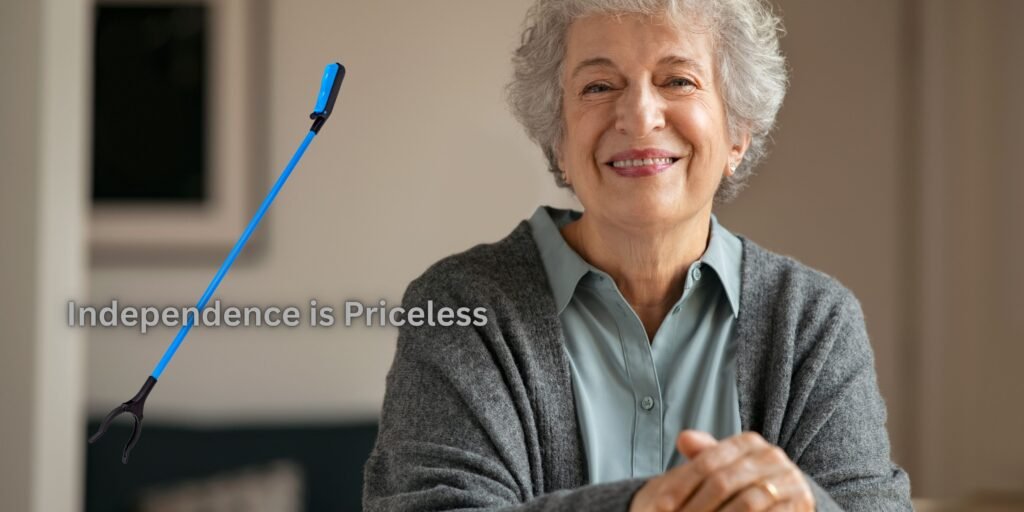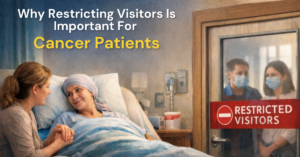Caregiving for an ageing loved one at home requires patience, dedication, and love. As assisted living facilities become more expensive, many families are seeking elder care at home. This is home. This is where seniors can age with dignity and comfort in familiar surroundings. Whether you are a family caregiver or considering professional caregiver services, this guide offers everything you need to know. In this article, we have tried to cover every aspect, from home safety to nutrition to emotional support to professional in-home adult care.
Why Elder Care At Home Matters
It is common for older people to prefer the comfort of familiar surroundings rather than moving into an assisted living facility or nursing home. It’s called “aging in place” and allows seniors to stay independent, maintain dignity, and maintain relationships with family members. Providing care for seniors at home offers many significant benefits — let’s look at why it makes such a difference.
Preserves Comfort and Familiarity
Older adults have a higher sense of security and comfort when they are at home with memories and routines surrounding them, which reduces stress and is beneficial to flourishing.
Strengthens Family Bonds
Helping out an elderly parent or loved one in the home is a fulfilling experience that creates stronger emotional bonds. Seniors feel more secure and cared for when family members are with them more often.
Personalized Care and Attention
Unlike institutional settings, in-home adult care can be tailored to meet the specific needs of elderly individuals – whether they require medication management, dietary changes, mobility assistance, or companionship.
Cost-Effective Alternative
For many families, care at home for seniors can be more affordable than full-time residency in nursing homes or assisted living facilities, even if combined with part-time caregiver services or adult respite care.
Enhances Emotional and Mental Health
Research shows that seniors who remain at home often experience lower rates of depression and anxiety than those living in institutional settings. Being surrounded by loved ones and familiar spaces reduces loneliness.
According to the CDC, simple safety changes can reduce fall risks in older adults, a key part of successful home care.
Preparing A Safe Home Environment
Safety is the cornerstone of elderly care at home. Most accidents that occur with seniors are preventable. A safe home is the foundation of successful elder care at home. As seniors age, minor household hazards can become serious risks. Since most accidents among seniors are caused by falls, poor lighting, or limited mobility, simple adjustments can dramatically improve safety and independence. Creating a secure, comfortable environment gives peace of mind to both seniors and caregivers.
Fall Prevention in the Home
As a caregiver, start by choosing a room from a senior’s perspective. Try to keep the room on the ground floor so that older adults do not have to struggle with stairs while caring for them at home. There should be no loose carpets, uneven floors, or hanging wires in the room. Arrange furniture in a way that allows for free movement around the room, especially if older people use a wheelchair or walker. Avoid furniture that is too heavy or that could cause injury. Proper lighting is also an essential factor. Install bright, glare-free lights in the room, hallways, stairs, and bathroom. Night lights near the bed and on the way to the restroom at night can help prevent falls during nighttime movement.
Bathroom Safety
Bathrooms deserve extra attention. Non-slip mats, grab bars near the toilet and shower, and a sturdy shower chair can make daily routines safer and easier. Adjust the water heater settings to prevent accidental scalding.
Kitchen Arrangement
Keep frequently used items in the kitchen within easy reach to avoid unnecessary bending and twisting. Ensure appliances are easy to use and label containers to minimize time spent searching for items and reduce mistakes. For seniors with cognitive challenges, install childproof locks on cabinets that contain sharp utensils or cleaning supplies.
Bed Arrangement
The right bed for older adults is also very important. Make sure the height of the bed is such that it is easy for older adults to get in and out of it. A side table is a must by the bed. Keep essential items like phone, glasses and water within easy reach to promote independence and minimize bends or twists unnecessarily. Choose a chair with armrests in the room to make standing or sitting safer and easier. These small but still important changes help create a senior-friendly space for home care and keep the elderly safe. Safety doesn’t stop indoors. Check outdoor areas such as porches and garden paths for uneven surfaces. Install handrails where needed and ensure entrances are well-lit and slip-resistant.
Mobility Aids & Assistive Devices
Choosing the right mobility aids and assistive devices plays a key role in safe and independent elder care at home. Depending on your loved one’s mobility level, tools like walkers, canes, or wheelchairs can make everyday movement steady and reduce the risk of falls. Lift chairs and transfer boards help seniors sit, stand, or move between surfaces with less strain. Adding a medical alert system provides extra peace of mind — ensuring immediate help is available during an emergency. These supportive devices not only improve safety but also encourage confidence, dignity, and increased independence in daily life — the actual goals of quality senior care at home.
Emergency Preparedness
Being ready for emergencies is a vital part of ensuring safe and reliable elder care at home. Keep emergency numbers such as doctors, nearby hospitals, and family contacts near the telephone or in a common place known to all caregivers. Keep a well-stocked first aid kit within easy reach so that it can be used immediately in the event of a minor accident or injury. Make sure smoke detectors and carbon monoxide alarms are installed and working correctly throughout the home.
For seniors who live alone, a wearable medical alert device provides an extra layer of safety. It allows them to call for immediate help in the event of an accident. With these simple but essential precautions, caregivers can ensure a safe home environment and peace of mind for both seniors and their families.
Think of safety as an act of love, not just a checklist. Every grab bar you install, every loose rug you fix, and every light you turn on is an act of love. These small details protect the dignity and comfort of the elderly, which is the true spirit of caregiving. Once seniors feel safe at home, the next step is to improve caregiving skills to make daily assistance easier. A safe home gives caregivers the confidence to focus more on caring for the compassionate elder rather than constantly worrying about accidents.
Essential Caregiver Skills
Caring for the elderly at home requires good intentions as well as essential caregiving skills that balance safety, compassion, and daily routines. Whether you are a family member or a hired professional, these skills contribute to a more structured, more rewarding caregiving experience.
Basic Health Monitoring
For basic health care, caregivers should be familiar with checking vital signs such as temperature, pulse, sugar, and blood pressure. Keep a log of medications given to the elderly patient, doctor visits, vital signs, and any other health changes. These small habits can play a big role in recognizing warning signs in time.
Communication with Compassion
Without good communication, caring for any patient can be difficult and lead to many complications. Communication is the heart of effective care for seniors at home. Speak clearly and simply, listen patiently, and maintain eye contact to make your loved one feel heard and valued. Some seniors have difficulty speaking or listening, so avoid rushing through conversations and showing any signs of boredom. Listening can sometimes be a great form of care.
Personal Hygiene & Daily Living
A key pillar of dignified and compassionate care at home is maintaining personal hygiene. Gently assist the elderly with daily activities such as bathing, dressing, grooming and toileting, while ensuring their privacy and comfort. Encourage them to do things on their own whenever possible. Even small tasks such as brushing their hair or choosing an outfit can boost their confidence and self-esteem. But remember, if they cannot do something on their own, do not force them at all. Often, the skin of the elderly becomes dry and irritated, so pay close attention to skin care to protect or prevent this and encourage proper hygiene to promote overall health and well-being. Combining patience, respect, and routine can transform caregiving into an act of kindness that nourishes both body and soul, which is the true essence of senior care at home.
For a deeper guide to prevent infections, see our post on Hygiene and Infection Control.
Mobility & Exercise
One of the most important aspects of caring for the elderly at home is to help with safe mobility and gentle physical activity. Encourage seniors to take short walks or do light stretching exercises to maintain strength, balance, and flexibility. For elderly patients who are immobile and bedridden, change their position regularly to prevent bedsores and improve blood circulation. When assisting the elderly with mobility, ensure comfort، safety, and use safe methods of transferring from bed to chair. Support gently from the waist or back, never by pulling arms or shoulders. Exercising regularly, as directed by your doctor, and taking precautions during transitions not only reduces the risk of injury but also promotes independence, confidence, and overall health. Encourage independence when possible, but always be prepared to step in when balance seems precarious.
Medication Management
Proper medication management is key to home elder care. A clear medication chart that details all prescriptions, doses, and schedules can prevent missing or double doses. Use pill organizers or smartphone reminder apps to make daily routines easier and more reliable. Monitor closely for side effects or changes in behavior that may indicate a reaction to the medication. Always share updated records with doctors or healthcare providers during appointments. Being vigilant and organized as a caregiver can prevent medication errors and ensure better health outcomes for your loved one.
For more tips, see our post on Managing Medications Safely.
With the right caregiving skills in place, the next step in Elder Care at Home is to ensure seniors get the nourishment their bodies and minds need. Balanced, thoughtful nutrition plays a vital role in maintaining strength, preventing illness, and supporting overall Senior Health and Well-being.
Nutrition and Healthy Eating For Seniors
Healthy nutrition is the backbone of effective elder care at home. As people age, their nutritional needs change; their energy levels may drop, their appetite decreases, and certain health conditions may limit what they can eat. A balanced diet helps seniors stay strong, maintain immunity, and enjoy a better quality of life.
Focus on Balanced Meals
A healthy plate should include a mix of lean proteins, whole grains, fruits, and vegetables. Proteins such as eggs, beans, chicken, and fish help maintain muscle strength, while fiber-rich foods support digestion. Encourage colorful meals — the more variety, the more nutrients they provide.
Stay Hydrated
Dehydration is common among older adults because the sense of thirst often declines with age. Offer small water sips throughout the day. If allowed by the physician, herbal teas, soups, and fresh fruit juices (without added sugar) can also help maintain hydration levels.
Address Dietary Restrictions
Many seniors have specific dietary needs due to conditions like diabetes, high blood pressure, or heart disease. Work with a doctor or nutritionist to create a personalized plan of healthy and enjoyable meals that meet your senior’s dietary needs. Limiting salt, refined sugar, and unhealthy fats can help prevent complications and promote long-term wellness.
Encourage Regular, Small Meals
Large meals can be overwhelming. Instead, offer small portions frequently, several times throughout the day. Include healthy snacks like yogurt, nuts, or smoothies between meals to maintain energy levels throughout the day and support overall nutrition.
Make Mealtimes Enjoyable
Nutrition is not just about eating and satisfying hunger, but also about having a pleasant experience at home. If possible, have the whole family sit at the same table with the elderly and eat together. Eating with the family reduces loneliness and promotes a healthy appetite. A relaxed and positive environment at mealtimes turns nutrition into comfort and connection and helps reduce stress by alleviating feelings of loneliness in the elderly.
Think of every meal as a moment of care — a bowl of soup that warms the body and soul, or a shared breakfast that begins the day with love. Through mindful nutrition, caregivers give seniors not just food, but comfort, energy, and a sense of belonging.
For more, explore NIA’s Healthy Eating Guide.
Once nutrition and hydration are well-managed, seniors are better equipped to maintain physical strength and emotional balance. That’s why the next step in senior care at home is focusing on emotional and mental well-being — a crucial part of holistic caregiving.
Emotional and Mental Well-Being
Home care for the elderly is not limited to their material needs only; mental health is equally important. With increasing age, the lack of energy and the feeling of loneliness also increase, leading to irritability. At such a time, it becomes necessary for their caregivers to provide them with a balanced and dynamic emotional environment. Help them to be happier, more engaged, and mentally sharp so that they do not suffer from mental stress.
Encourage Social Connections
Loneliness in older adults has a direct impact on their mental health. To avoid social isolation, encourage seniors to stay in touch with family, friends, and neighbors. This contact does not have to be in the form of regular meetings, but short phone calls, video chats can also play a role in alleviating social isolation. If the health of the seniors allows, involve them in senior clubs or faith-based gatherings to maintain their spirit of living. Remember, social connection is a powerful medicine.
Support Hobbies and Interests
Positive activities keep both the heart and mind active. Encourage seniors to engage in meaningful activities that are relevant to their interests and past experiences. Whether it’s gardening, puzzles, reading, or light music, any activity will help keep them busy and free from stress and worries. At the same time, such activities give them a sense of purpose and general emotional well-being.
Promote Mental Stimulation
Aging has a direct impact on a person’s memory, and a person becomes susceptible to cognitive decline. This decline becomes more rapid when there is a lack of factors that keep the brain active. Often, older people become isolated from the hustle and bustle of life due to illness and this is the situation when cognitive decline intensifies. In such a situation, engaging in memory games, reading sessions, or learning a new skill can help them keep their brain active. Remember, older adults sometimes show interest in learning new information or skills, but due to memory weakness, they may have difficulty understanding. In such a situation, caregivers need to be patient.
Respect and Active Listening
Often, seniors need someone who will listen more than talk to them. Respect their desire and allow them to openly express their thoughts, feelings, memories, and experiences. Listening with patience and empathy reminds them that their experiences still matter.
Encourage Gentle Physical Activity
Light exercise such as stretching, walking, and chair yoga, as directed by a doctor, releases endorphin hormones that help reduce stress and pain. Physical activity also reduces anxiety and improves sleep, both of which are important for emotional balance.
Watch for Signs of Depression or Anxiety
Caring for the heart and mind of older adults goes beyond respecting their emotions. Older adults are more likely to become depressed or anxious, so caregivers should be aware of early warning signs, such as withdrawal, irritability, or sudden loss of interest. If these symptoms persist despite all efforts to care for the patient, seek help from a doctor or mental health professional. A kind word, shared laughter, or a quiet moment together can heal far more than medicine ever could. Emotional care reminds our elders that they are not alone — they are loved, seen, and valued every single day.
Check out our post on Assisting with Daily Living Activities for more engagement ideas.
By nurturing the emotional and mental side of aging, caregivers create a truly comforting home care environment. But emotional well-being alone isn’t always enough — some families may need professional assistance to provide consistent and specialized elder care at home. Let’s explore how professional caregiver services at home can enhance overall senior care.
Professional Caregiver Sevices At Home
As care needs increase, it becomes increasingly complex for family members to manage them. This is when the invaluable help of a professional care service is required. Trained caregivers can provide expert guidance to ensure the comfort and safety of older adults. This reduces the burden on family members.
Types of Home Care Services
- Elder Live-in Care – A caregiver stays full-time at home.
- Adult Respite Care – Short-term help to give family caregivers rest.
- In-Home Adult Care – Medical and non-medical daily support.
- Specialized Care – Dementia, Alzheimer’s, stroke, or mobility support.
Understanding the Role of Professional Caregivers
Seniors need a caregiver to help with daily activities such as bathing, dressing, preparing meals, and remembering medications. Professional caregivers are trained to do all of these tasks. Some certified nursing assistants are experts in monitoring medical conditions, recording changes in them, and liaising with medical professionals. The presence of such professionals ensures reliable care for seniors at home.
Personalized Care Plans
Seniors have unique needs. A professional caregiver creates a plan with those needs in mind. This plan helps determine whether the senior needs assistance for a few hours a day or if full-time live-in care is necessary. This unique approach balances the senior’s independence and support.
Emotional and Social Benefits
Professional caregivers not only provide physical support, but they also provide good company to older people. Their friendly conversation, shared activities, and genuine presence reduce feelings of loneliness, which improves the emotional well-being of older people. Because they know that caring for older adults is not limited to care alone, but also requires establishing an emotional connection.
Safety and Expertise
Professional caregivers are experts in mobility, fall prevention, and emergency response. They also have experience managing memory-related conditions, such as Alzheimer’s or dementia. These professionals can provide services that a family would not typically be equipped with.
Relieving Family Stress
Family caregivers often experience fatigue and emotional burnout. Hiring a professional caregiver allows families to rest, work, or focus on their own well-being — knowing their loved one is in capable hands. This shared responsibility strengthens the support of caregivers and prevents stress from overwhelming the family unit.
Choosing the Right Service
When choosing a care agency, check background screening, certifications, references, and insurance coverage. Clear communication about schedules, duties, and costs builds trust and ensures smooth collaboration. Accepting help from a professional caregiver isn’t a sign of failure — it’s an act of love. It means ensuring your loved one receives the attention, skill, and consistency they deserve. With the right caregiver, home becomes not just a place of comfort but a sanctuary of safety and compassion.
See Family Caregiver Alliance for more professional caregiver resources.
Caring For The Caregiver
Behind every strong senior stands an even stronger caregiver. Whether a family member or professional, caregiving often means putting someone else’s needs first — day after day. Over time, this dedication can lead to exhaustion, stress, and emotional fatigue. That’s why caring for the caregiver is just as essential as caring for the senior. A healthy, balanced caregiver ensures consistent, compassionate elder care at home.
Recognize the Signs of Burnout
Caregiver burnout is a state of physical, emotional, and mental exhaustion caused by the stress of caring. Caregiver burnout does not happen overnight. It develops gradually over time, often through persistent sleep disturbances, skipping meals, or feeling quiet and frustrated. Common symptoms of caregiver burnout include irritability, forgetfulness, or emotional withdrawal. Acknowledging these feelings is not a weakness, but an important step toward recovery and better caregiver support.
Take Regular Breaks
Even the most dedicated caregiver needs some time to relax and recharge. Schedule short breaks during the day to go for a walk, read, or simply breathing deeply. Plan a full day off every week whenever possible. The temporary relief from the caregiving process will help you feel refreshed on an emotional level.
Build a Support Network
Caring for an older adult at home is an ongoing process, and no one should have to go through this journey alone. Connect with friends, family members, or local caregiver support groups. Sharing your experiences relieves stress and reminds you that others understand exactly what you’re experiencing.
Prioritize Your Health
Healthier caregivers provide better care. Maintain a balanced diet, exercise regularly, and get enough sleep. Attend your own medical appointments — remember, your well-being is directly affected.
Ask for Help When Needed
When an older adult is being cared for on an ongoing basis, there is nothing wrong with seeking professional help or respite care. Hiring a professional caregiving service at home, even for a few hours a week, can make a big difference. These services provide you with opportunities to relax, focus on personal responsibilities, or restore emotional balance.
Stay Emotionally Connected
Caregiving is a constant process that can sometimes make the caregiver feel isolated. Maintaining your own interests and friendships can help reduce this feeling. Immerse yourself in hobbies, spiritual practices, or volunteer work that fosters your own sense of purpose. When you take care of yourself, you model strength and self-esteem — qualities that your loved ones benefit from as well.
Caring for someone you love is one of life’s most selfless acts — but even the strongest hearts need rest. Remember, you can’t pour from an empty cup. Take time to heal, laugh, and live. When caregivers care for themselves, they don’t just sustain others — they create a circle of care rooted in strength, compassion, and love.
Read more in our upcoming post: Caregiver Stress Management.
While professional help can greatly enhance elder care at home, there are times when even the best in-home care may not be enough. Recognizing when to transition from home care to a higher level of support — such as assisted living or medical facilities — is the next crucial step for every caregiver.
When Home Care May Not Be Enough?
While home care for older people allows them to age with dignity and comfort, there may come a time when home care cannot meet their growing needs. In such cases, families need to recognize symptoms early to ensure their safety and quality of life and to make timely, compassionate decisions. Let’s now consider the signs that indicate when home care is no longer sufficient for seniors, to ensure their safety and quality of life.
Notice Changes in Health and Mobility
A senior’s rapidly declining health, frequent falls, uncontrolled chronic conditions, or increasing dependence on caregivers may indicate the need for more specialized monitoring. Professional medical care in an assisted living or nursing facility can provide round-the-clock supervision that is not always possible at home.
Escalating Medical Needs
Conditions such as dementia, Parkinson’s, or heart failure can progress to stages that require skilled nursing, rehabilitation, or advanced medical equipment. Moving seniors to a professional care facility ensures their continued access to medical attention and treatment.
Emotional and Social Isolation
Due to limited social interaction in some families, some seniors may feel isolated despite excellent care at home. Assisted living communities often offer structured activities, group meals, and companionship — helping seniors stay emotionally connected and engaged.
Family Readiness and Resources
Every family situation is different. Assess the financial resources, available time, and emotional readiness before choosing a transition. Consulting with a doctor, a social worker, or a geriatric care manager can help you explore the most appropriate long-term options for your loved one. Letting go of home care can be one of the difficult choices a family can make. But love often means recognizing that someone needs more help than we can give them alone. Whether your loved one is at home or in a care facility, the important thing is that they feel safe, valued, and cared for. Dignity, comfort, and peace are the primary goals of elder care at every stage. Now, let’s bring everything together to a gentle conclusion that highlights the true essence of home caregiving.
Conclusion
Caring for an aging loved one is more than a daily routine — it’s a journey of patience, empathy, and commitment. Through this complete guide to elder care at home, we’ve explored how safety, nutrition, emotional support, and skilled caregiving work together to create a life of dignity and comfort for seniors. From preparing a safe home environment and mastering essential caregiving skills to ensuring healthy eating and nurturing emotional and mental well-being, every step you take strengthens your loved one’s independence and peace of mind. And by taking care of yourself, you can keep that circle of care strong and sustainable. Home is where love lives — and with the proper knowledge, support, and compassion, it can also be the safest and happiest place to age gracefully.
Elderly care at home isn’t just about extending years—it’s about enriching them.
If you find this guide helpful, don’t miss our Medication Management Guide — a practical resource to help you organize and use medications safely as part of effective home caregiving.






